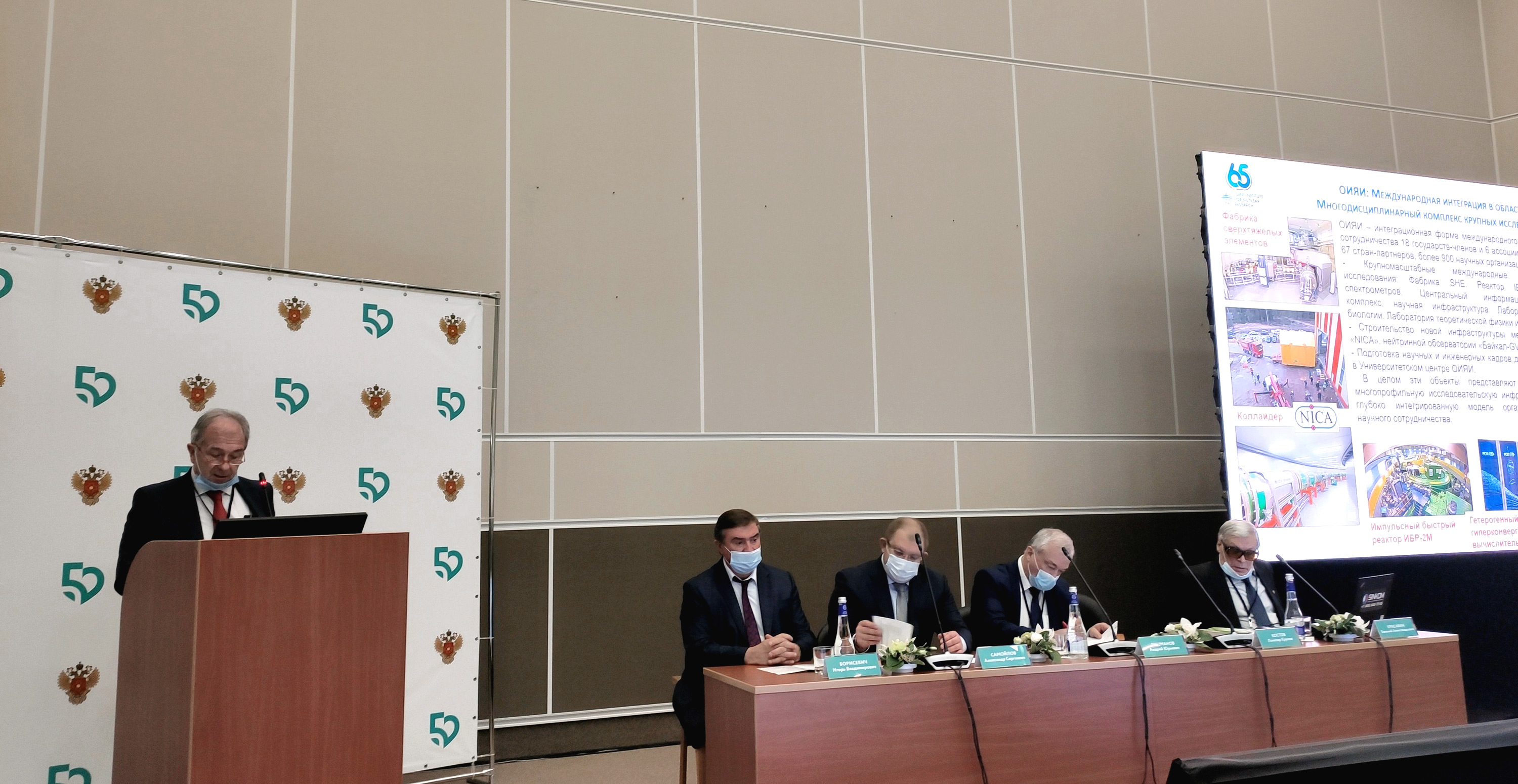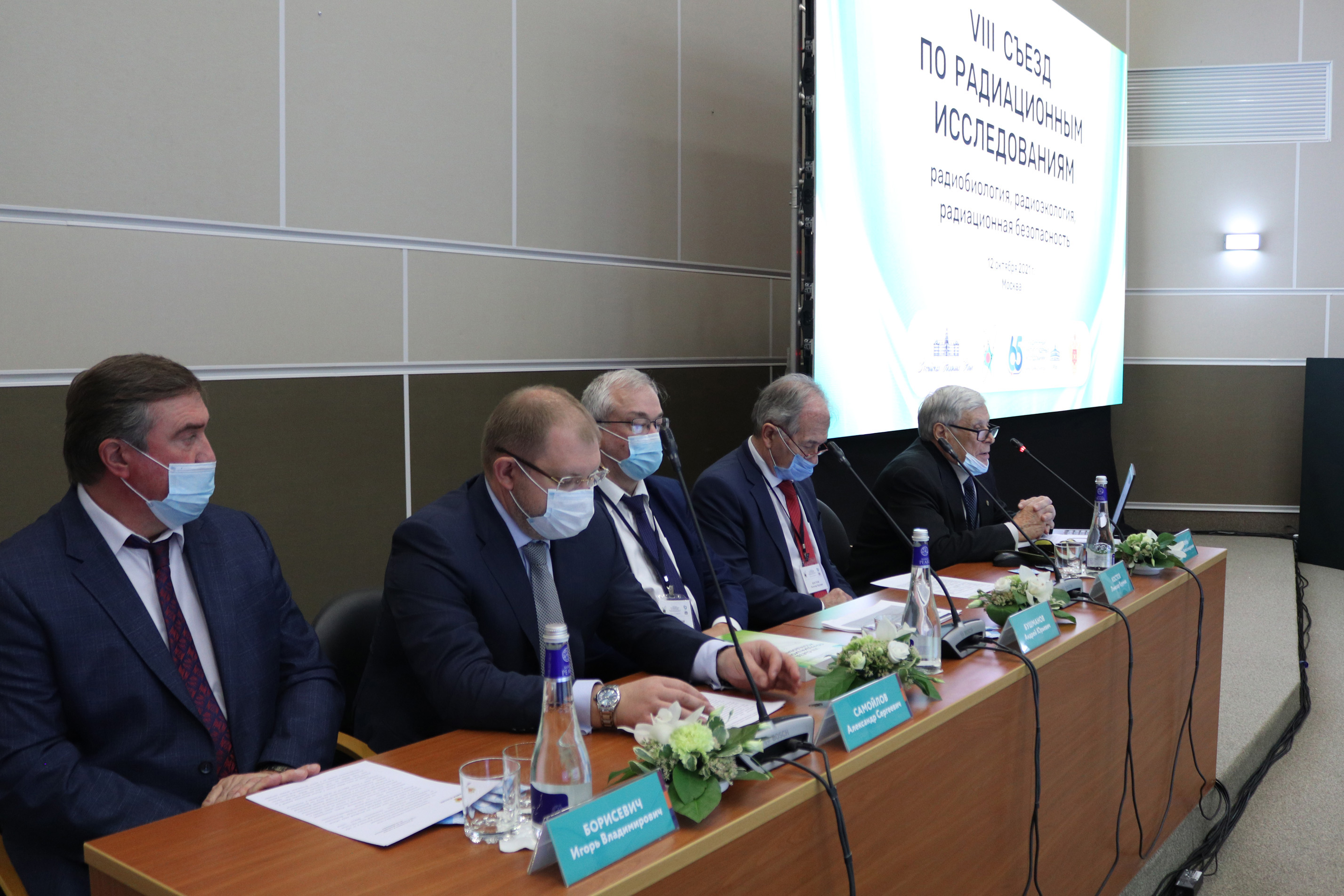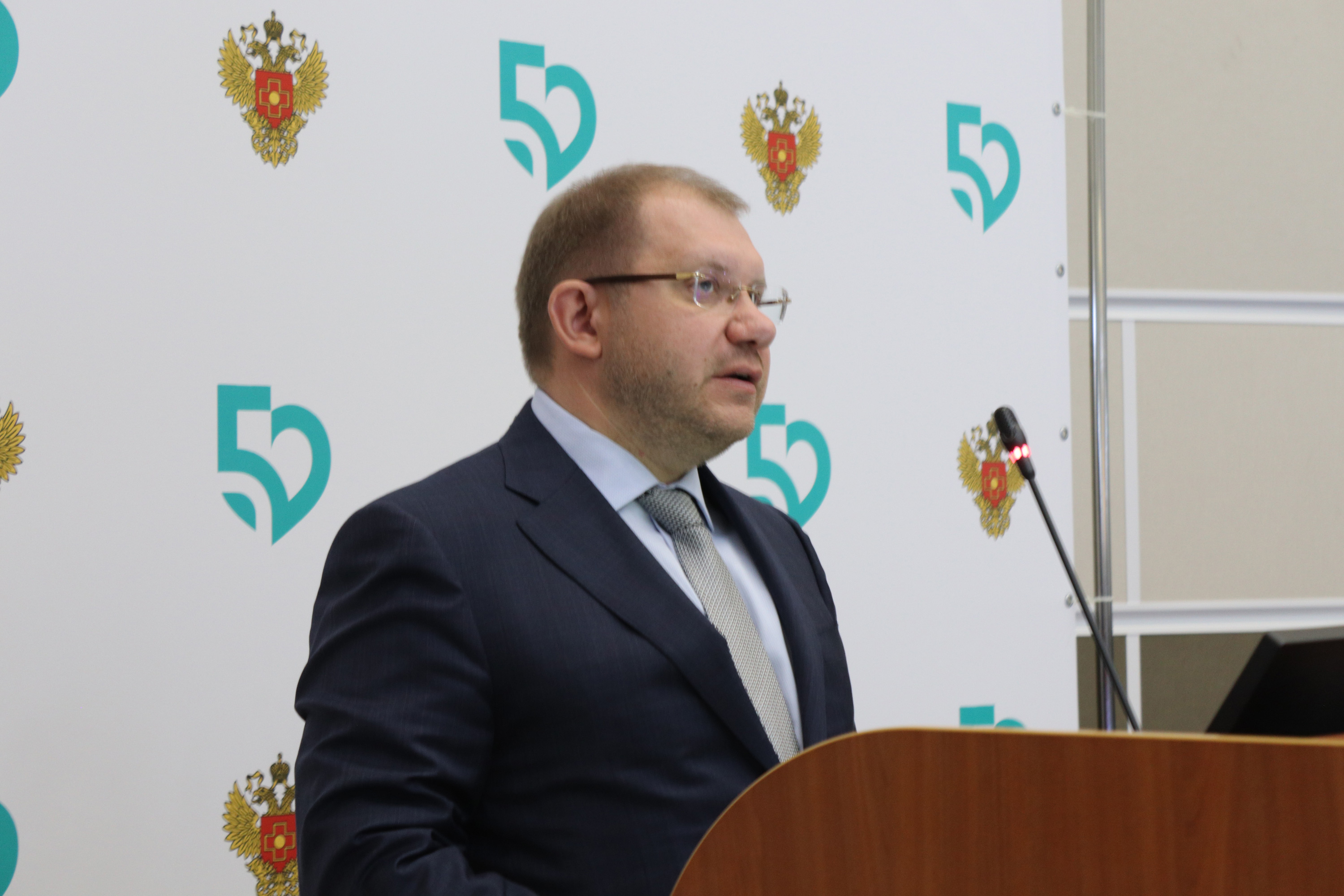At Congress on Radiation Research
News, 14 October 2021
On 12 October, a plenary session of the VIII Congress on radiation research was held in the Large Conference Hall of Burnasyan Centre of FMBA of Russia. Head of the RAS Scientific Council on Radiobiology, Scientific Leader of LRB JINR, RAS Corresponding Member E. A. Krasavin opened the session. In his welcoming speech, he emphasised that all participants of the Radiobiological Society had done a great deal of work since the previous Congress. More than 330 speakers registered for the Congress and 372 scientific papers from 30 scientific centres in all areas of radiation research were published in the collection of abstracts. This indicates that society and the Government are interested in solving radiobiological problems. The final decision of the Congress will definitely reflect this fact.
Deputy Head of the FMBA I. V. Borisevich read out a welcoming speech on behalf of the Federal Medical and Biological Agency and on behalf of RAS Corresponding Member V. I. Skvortsova, in which she congratulated all participants on the opening of the Congress. She noted that such a significant event for Russian science was held at Burnasyan Centre of FMBA of Russia, which had celebrated its 75th anniversary this year. She also said in her letter that radiation science is a complex field of knowledge covering several areas at once: biology, chemistry, physics, and medicine. There is steady progress in this area of research in recent years. A great deal of research and practical work has been done. It is necessary to discuss its results not only among specialists but also at the federal level. Radiobiological research is foundation of effects at the level of the organism and human population. In terms of ensuring nuclear and radiation safety, the FMBA of Russia relies on the developments of Burnasyan Centre, which carries out its research activities not only within the framework of government orders but also federal target programmes. The Congress attracts more and more participants every year and, thus, it becomes a discussion platform for leading experts in the fields of radiobiology, radioecology, and radiation safety.
Scientific Secretary of the Radiobiological Society V. I. Naydich presented a welcoming letter on behalf of President of the Society A. I. Gaziev. In his letter, he paid close attention to the fact that it is necessary to develop radiation research in our country, as in a Great Nuclear State, in accordance with status and demands of the time. Active development of radiation research requires appropriate training of specialists in this field. It is very important for a more detailed understanding of effects of ionizing and non-ionizing radiation on all living things, the development of more sensitive test markers for assessing radiation damage to humans and the entire biota, the creation of more effective radioprotectors, radiomitigators, radiation damage therapy, reducing genetic burden, and radiation carcinogenesis. Increasing the effectiveness of radiotherapy of tumours with protection of normal tissues remains one of the most important tasks. Searching for ways to protect astronauts from radiation outside the Earth’s magnetosphere is also one of the main tasks of radiobiological research.
Director General of Burnasyan Centre of FMBA of Russia, RAS Corresponding Member A. S. Samoylov referred to the origins of the Congress creation in 1989 in his welcoming speech. He noted that importance of radiobiology increases every year, and radiobiological research is a theoretical basis for applied developments of radiation protection. The Executive Order of the President on the Approval of the Basic Principles of State Policy of the Russian Federation in the Field of Nuclear and Radiation Safety until 2025 and beyond shows a great interest in this area from the Government’s side. This forum helps to solve problems of radiobiology, radioecology, radiation hygiene, and radiation safety.
JINR Vice Director L. K. Kostov congratulated participants on the opening and wished productive work to participants of the Congress on behalf of the JINR Directorate. He briefly spoke about fundamental projects of the Joint Institute, its plans and opportunities in the fields of the integration form of international scientific cooperation. He paid special attention to scientific directions of life sciences developing in the Laboratory of Radiation Biology of JINR . An International Centre for Innovation Research in Nuclear Technologies is being created at JINR according to the JINR Long-Term Development Strategic Plan up to 2030 and beyond . Specialists of the Centre will unite efforts to develop technologies and methods in nuclear and radiation medicine, radiation materials science, advanced training of specialists for the JINR Member States in radiation biology, medical physics.
Before plenary reports, E. A. Krasavin paid respect to colleagues and coworkers radiobiologists who had made a significant contribution to the development of radiobiology and radiation research.
Plenary speakers (A. Yu. Bushmanov, I. K. Romanov, E. A. Krasavin, I. A. Zamulaeva, E. V. Khmelevsky, L. P. Zhavaronkov, L. M. Rozhdestvensky, A. N. Grebenyuk, S. A. Geraskin) set the direction of discussions and got some perspective on the problems and outcomes of radiation research, which, of course, took place in the section meetings of the Congress.




